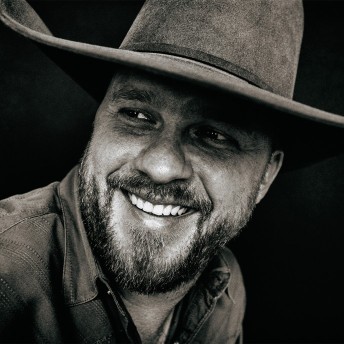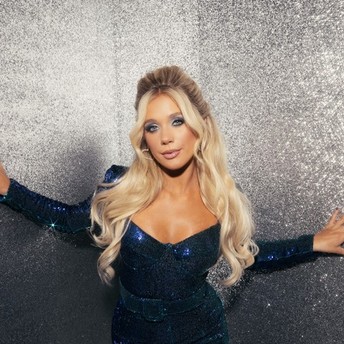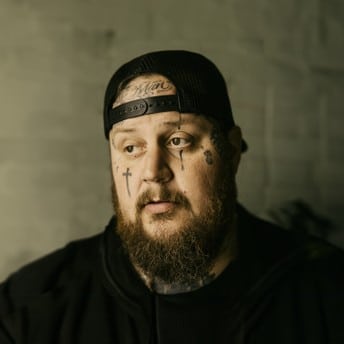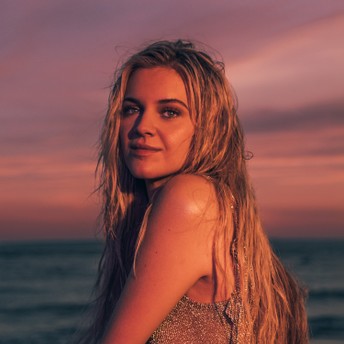Country
Page: 3
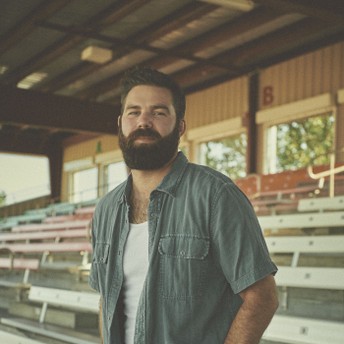
Trending on Billboard
In Jordan Davis’ 2023 single “Tucson Too Late,” the singer races to the airport, hoping to save a relationship.
His latest, “Turn This Truck Around,” reverses direction. In this case, he’s driving away, attempting to end a partnership. It’s similar in storyline to Glen Campbell’s 1968 release “By the Time I Get to Phoenix,” though there are sharp differences. “Truck” sounds tougher and technology makes it more likely the woman he’s leaving can initiate a conversation that will make the guy cave.
“‘By the Time I Get to Phoenix,’ you’ve got to find a pay phone, even if you want to make the call,” Davis notes. “Now we’re carrying our phones around.”
Explore
See latest videos, charts and news
The only actual travel involved in writing “Turn This Truck Around” was the four songwriters’ commutes to Nashville’s Anthem Entertainment on Dec. 7, 2024, and the family trips they rekindled in conversation. Davis talked about chauffeuring his three kids (he and his wife, Kristen, have since added a fourth), and Warner Music Nashville artist Devin Dawson recounted a ride he and his twin brother, writer-producer Jacob Durrett, took to the Six Flags theme park in Vallejo, Calif., when they were young.
“My brother and I are in the back seat, just being little hellions and picking on each other and shit,” Dawson says. “I remember [Mom] saying, ‘Don’t make me turn this car around.’ ”
Those images didn’t take on significance until Jake Mitchell (“One Beer,” “Some Girls”) introduced a pulsing track he had developed with a simple chord progression. It had a Tom Petty air about it, and discussion about the driving beat led to talk about driving imagery. Dawson brought the earlier conversation back up with a slight revision to the vehicle, “Turn This Truck Around.” The work was fairly easy.
“It doesn’t feel like we talked about what the idea would be that much,” Mitchell offers. “It kind of just came out. And I feel like we didn’t put too much story in there. It’s more so just about that moment when you’re thinking to yourself, ‘Don’t do it, don’t do it. Don’t go back.’ ”
The chorus melody emerged first, and Josh Thompson (“Drowns the Whiskey,” “Wasted On You”) provided the setup line, with the protagonist proclaiming he was on his way “long as your memory/ Don’t make me turn this truck around.” Davis wanted a starting line for the story, and they crafted one — “This time I said it and I meant it” — that indicated the relationship had been in trouble for some time. From there, they bounced back to the chorus before patching the whole plot together. Verse one provided a sense of the journey, focused on the brakes and the gas station stops. Verse two brought the listener inside the cab, where the singer wrestles with the love songs on the radio and fears that a text message will undermine his determination. It’s never clear if he’ll go through with the breakup or give in.
“I kind of love the little bit of open-endedness in that lyric,” Davis says.
They brought the tension to a climax in the bridge — though not the kind of bridge one encounters on the road.
“I’ve written with [people who] said bridges are made for burning and jumping off of,” Davis quips. “There are some songs where the bridge just feels like it’s useless, but this one I was pretty proud of. It really kind of helps the song out.”
It allows for a mention of “memory lane” — “ ‘Memory Lane’ had to be in that song,” Davis says — but it also uses musical elements to amp up the drama.
“The bridge is my favorite part of the song,” Dawson says. “I think it just really lets all that emotion spill out of the melody, and the way he sings it — [near] the top of his range there — it really dumps the desperation out.”
Mitchell produced the demo, which introduced several new ideas. He inserted sound effects of a door slamming, boots walking and an ignition starting, though none of those made it into the final product. And at Dawson’s suggestion, he employed a halftime feel on the bridge. They all thought they had a winner, and Mitchell didn’t want to take a risk that any element in the recording would turn off even one decision-maker who would be evaluating its potential.
“It’s usually got to go past A&R managers,” he reasons. “They play it for all kinds of people in their teams, and sometimes, whether people realize it or not, they can not like a song because of the way a vocalist says words. Even if they don’t think about it that way, they could just be like, ‘I don’t know about that one,’ and that one voice could make an artist doubt the song and not want to do it.”
Davis left the appointment confident that they had written a hit. He had never felt that way about a song before and never lost faith in “Truck.”
Producer Paul DiGiovanni (Travis Denning, Alana Springsteen) appreciated its Petty-like foundation — “My favorite artist of all time right there,” he says — and he made a point of highlighting the persistent eighth notes that were key to many of Petty’s recordings during a tracking session at Sound Stage on Music Row.
Mitchell’s demo had presented the song’s substance well — “He knocked it out of the park,” DiGiovanni says — and the final production essentially worked its way to the bridge.
“Some bridges are just like, ‘Hey, let’s change my brain chemistry for 10 seconds so you can put me back into the chorus,’ ” DiGiovanni explains. “That is the climax of the song. It’s the most desperate part and it’s a pretty long bridge. So I feel like that’s as important as the chorus in the song, and I knew we needed to put some emphasis on that.”
As uncluttered as the arrangement feels, it adds small touches and extra voices throughout, many of them felt subliminally. It includes, for example, a quiet, filtered-out synth part that sounds like wood blocks at the end of the choruses and a barely audible pulse synthesizer and Hammond B-3 that operate as a danger signal at the bridge’s conclusion.
“It just builds as it goes,” DiGiovanni says. “Like the background vocal stacks — the first chorus, there’s four; the second chorus, there’s six; the last one, there’s 12. It’s just things to pad it and give it a little bit more beef as it goes on.”
Despite the angsty bridge, it was one of the easiest vocal performances of Davis’ career. “Usually, I go in and cut vocals for two hours,” he says. “I went in to just sing two songs one day, this being one of them. It was like 20 minutes. Paul is looking at me like, ‘All right, man. Anything else? You good?’ That was a good day.”
So was April 5. He played “Turn This Truck Around” live for the first time during the Tortuga Music Festival in Fort Lauderdale, Fla. The audience responded as if it was familiar, and it confirmed Davis’ belief it should be a single. MCA Nashville released it to country radio via PlayMPE on Oct. 13. Fans may respond as if the song is preordained; the results of the storyline are not.
“The hero in this song — I love the fact that he’s not 100% sure that he’s the hero,” Davis says. “Eventually, her memory is going to catch up to you, no matter how far you drive.”
Trending on Billboard
Cody Johnson and his wife Brandi Johnson welcomed their third child, and first son, last month.
During an interview with Lon Helton’s Country Countdown USA, Johnson revealed that the couple had welcomed their third child, son Jaycee Daniel Johnson, on Oct. 21. In May 2025, while on the red carpet at the Academy of Country Music Awards, Johnson revealed the couple was expecting their third child.
Jaycee joins the couple’s older children, daughters Clara Mae (born in 2015) and Cori (born in 2017). In May, Johnson told People about expecting his first son, “My girls… you can’t beat my girls, I love my two girls with all my heart. They’re 10 and 8, Clara and Cori, and I think I’m excited to watch them help raise this little boy.”
Explore
See latest videos, charts and news
Johnson also added that he felt “a lot better off now as far as career and financially, than I was when we had [our daughters]. He’s gonna get a horse a little quicker than my kids did. He’s going to get to do some things a little quicker than my daughters did.”
Heading into next week’s CMA Awards, slated for Nov. 19, Johnson is nominated for four trophies, including entertainer of the year and male vocalist of the year, as well as music video and musical event of the year (for “I’m Gonna Love You” with Carrie Underwood).
Last year, Johnson sold out his first stadium show at Globe Life Field in Arlington, Texas. He recently had to cancel his remaining tour dates for 2025 due to a ruptured ear drum, but has plans to head out on the road again in 2026.
“It is with a very heavy heart I have to share the remainder of this year’s concert performances will not be able to happen. While battling a severe upper respiratory and sinus infection, I burst my ear drum. The severity of the rupture means I must undergo immediate surgery. The healing process will take many weeks, and it is not possible for me to sing during this time. Without the surgery my downtime could be months. I pray for full healing so I can get well and return to doing what I love. Thank you COJO Nation for the love and support now, and always,” Johnson said in a statement on his official site announcing the canceled tour dates.
Trending on Billboard
To misquote James Brown, it’s a man’s, man’s, man’s world in country music.
In addition to the typical onslaught of individual singles and tracks, at least 11 new country albums and EPs were released on Nov. 7 that have something very basic in common: They were recorded by solo male artists. If there’s ever been a release pattern that provides a glimpse into one of the genre’s biggest challenges, this may be it.
The schedule’s most prominent entry comes from Country Music Hall of Fame member Willie Nelson, whose Workin’ Man: Willie Sings Merle draws on a bevy of classic songs by fellow Hall of Famer and former duet partner Merle Haggard. At the other end of the scale, Spencer Hatcher releases his first major-label EP, Honky Tonk Hideaway.
Related
In between are two acts doing career resets, Jake Owen and Ryan Kinder; a pair of Christmas releases by Brad Paisley and Hunter Hayes; a personal comeback by Colt Ford; and debut albums by independent artist Cooper Alan and Music Soup/Interscope/MCA Nashville act Vincent Mason.
That conglomeration reflects one of the ongoing issues for country marketers. Thirty-nine of the 60 titles on Billboard’s Country Airplay chart dated Nov. 15 are solo guys. Much has been made over the dearth of female voices in the genre, as well as the paucity of minority voices and the relatively small number of groups and duos. But that forces all those male performers to compete with little space to create a unique lane for their brand. Developing that singular identity is key for artists who hope to build a career for the long haul, and they’re required to walk a tightrope in the process, mining the influences that led them to this career path while breaking away from them at the same time.
“I could try to write what’s on the radio,” Alan says. “But that stuff’s already on the radio, and those people are already doing it really, really well. So why is that a good strategy for me?”
Cooper Alan
Matthew Berinato
Nelson is the best example among the Nov. 7 releases —perhaps the best example in all of country music — of a male artist who established his own turf in a crowded field. His musical phrasing, the grainy tone of his voice, the buzzy sound of his guitar and his propensity for braids and/or bandanas are a few of the elements that set him apart. Even in Willie Sings Merle — which features covers of such iconic titles as “Silver Wings,” “Mama Tried” and “Okie From Muskogee” — Nelson’s performances are distinctly recognizable.
Ford, with the release of Little Out There, likewise occupies a position that’s specific to him. He was the first successful proponent of country-rap, and he brings his familiar flow — along with more traditional singing — to a series of songs that benefit from a personal story that makes him even more unique. It marks his first release since a near-fatal heart attack in April 2024.
“You need to know who you are and not care about everybody else,” Kinder notes.
Related
It’s a lesson Kinder learned firsthand. His unique vocal tone serves in subdued settings as reassuring cotton, but becomes a searing blade when he lets it go. In some moments during his career, he has admittedly attempted to adapt to others’ expectations. With new release The Beginning of Things, he strips down a dozen songs he wrote with producer Luke Sheets in his earliest years in Nashville to recapture their original essence. After previous deals with Bigger Picture and Warner Music Nashville, the indie project is something of a career reset as he refines his public persona.
“The [current] music business is the Wild West, which makes it fun and scary,” he says. “I just wanted to go back to the basics for a little while, and all these songs that we recorded were the first ones me and Luke wrote when I came to town. They’re the ones that got everybody excited about what I was doing. They’re the reason I got signed to both of my record deals.”
Owen’s Dreams To Dream is likewise a revision. Nearly 20 years after his first album, he teamed with producer Shooter Jennings (Tanya Tucker, Charley Crockett), eschewing the contemporary sound that dominated his career for a raw tone that draws on the outlaw era.
The late Luke Bell, whose 2022 death drew a new level of attention, had established a creative lane that recalls an even earlier era. The King Is Back, a double album that purportedly represents all of his unreleased material, uses production techniques that recall Sun Records’ 1950s heyday, melodic touches that evince Ernest Tubb and Wynn Stewart, and a yodel that hints at Hank Williams.
Hatcher and Drake Milligan borrow from more recent voices. Milligan’s sophomore project, Tumbleweed, reaffirms his George Strait leanings — the Texan has a bit of Strait’s tone and embraces material that one can imagine Strait recording. But Milligan delivers it more dramatically than the ever-cool country icon and adds a bit of Elvis Presley hip-shaking in his live shows.
Hatcher’s resonance would fit in the center of a Venn diagram of Kenny Chesney, Aaron Tippin and Mo Pitney, wrapped in a package that fits ’90s country. That era influences much of modern country, but Hatcher is betting on his real-world connection to the music and its associated lifestyle.
“I grew up on a farm in the Shenandoah Valley of Virginia,” Hatcher says. “I’ve lived a country life my whole life. Nothing about me is fake and I think that my music reflects that. It’s very traditional, it’s very real. And I’ve always been very authentic, not only to myself, but to what I believe true country music is and was founded on.”
His EP’s name, Honky Tonk Hideaway, is designed to assist in establishing his identity as a country centrist.
Related
“The title is a pretty good representation of who I am as an artist,” he says. “As far as ‘honky-tonk’ being such a country term, you know, it’s not just a bar, it’s a honky-tonk. I don’t think it would be mistaken as any other genre.”
Hatcher is specific about his presentation — jeans, boots, Western hat — adhering to the classic image of a male country singer. That look partially resembled the starched shirts and jackets that Strait employed to create his own version of that staunch-country identity.
In more recent years, the backward ballcap has become a style point for many young country guys, including Mason, who’s introduced through the album There I Go. He filters his version of country through Southern rock vibes — slide guitar and Hammond B-3 — though he altered his wardrobe recently for some strategic separation.
“This kind of sounds silly, but he’s not been wearing a baseball cap for the last couple of months,” says his manager, Champ Management founder Matt Musacchio. “All the comments on social media [have been], ‘We love you without the hat. We didn’t realize what you looked like.’ We played into that a little bit, too. There’s [a campaign] that’s ‘Who the fuck is Vincent Mason?’ on TikTok. And it’s slowly but surely kind of unraveled who he is.”
Mason, and the holidays, are part of the reason that males play an outsize role in the Nov. 7 releases. His team originally targeted Oct. 31 for his first album, but Mason insisted that his fan base would likely be partying on Halloween, convincing them to wait a week to release it. Meanwhile, two holiday records — Paisley’s Snow Globe Town and Hayes’ Evergreen Christmas Sessions — were scheduled to take best advantage of Yuletide music purchases.
Hunter Hayes
David Bradley
Both Christmas projects lean on familiar identities. Paisley’s snaggly guitar fills and whipped-up soloing are present in “Counting Down the Days,” which doubles as theme music for Hallmark’s annual slate of holiday movies. Hayes displays flashes of jazz in “Have Yourself a Merry Little Christmas” and blues in “Run Rudolph Run.” For Hayes, that exploration enhances his established musical personality.
“Country’s a lot of different things, and my thing is I make a lot of different kinds of music,” he says. “I’m very influenced by the stuff I grew up listening to that is country, and I’m really inspired by a lot of country artists right now. I don’t know that I would label myself as a strictly country artist, just because I make so many different things, and I enjoy bringing so many different things into what I do.”
A facile guitarist who played all the instruments on his first album, Hayes has never had trouble developing an identifiable niche.
“I’ve never struggled with having something unusual about what I’m doing,” he says. “Honestly, the challenge has been ‘How do I fit in?’ That’s been my challenge for my entire career.”
Related
With consumers focused primarily on individual tracks in the digital age, the album is arguably as much a branding opportunity as a creative endeavor, and Alan titled his Nov. 7 debut Winston-Salem, emphasizing his North Carolina roots. He took extra time this year to write and record more songs that adhere to a specific theme. The result is a hefty 20 titles that play with the city’s hyphenated name. He’s a family guy in the Winston portion of the album and a party animal in the Salem half.
While the imaging and branding surrounding the artist should emphasize their uniqueness as a product, the songs are ideally created without much consideration of the competition.
“I pay attention to how things are marketed and what’s working strategically for other artists,” manager Musacchio notes. “But when it comes to the music itself, there’s never been a conversation about what other people are doing and trying to fit in in a certain way.”
The key, it appears, is making music that represents the artist’s creative tastes, then employing authentic marketing that accentuates their best attributes. Hopefully, they’re different enough that they can find their place in a country world that’s teeming with men, all vying for the affection of a specific fan base.
“There’s a whole lot of pie,” Alan suggests. “No matter how big or small your piece of that pie is, it’s pretty good to just at least have a bite of that pie.”
Trending on Billboard
Megan Moroney is trading the deep blue tones that accented her album Am I Okay? with the lush, cotton candy pink hues that are ushering in her new album, Cloud 9, set to release Feb. 20, 2026.
Explore
See latest videos, charts and news
“It’s a long way down,” Moroney said on Instagram when announcing the new album. She also shared the angelic cover artwork of the project, which features the singer standing on a ladder and dressed in a vivid pink gown with a train that blends with the pink-tinted clouds that surround her.
According to that announcement, the album will have three sides and appears to have 15 total tracks, among them the title track (“Cloud 9”) as well as “6 Months Later” and “Beautiful Things.”
Earlier this year, “6 Months Later” reached the top 30 on the all-genre Billboard Hot 100, and has reached the top 10 on the Hot Country Songs chart.
“I am so excited for my fans and I to dive into this new world of Cloud 9 together,” Moroney said in a statement. “Similar to the first two albums, it’s all written about honest, personal experiences, but these songs were written by the strongest, most confident version of myself I’ve ever been. My feet feel firmly planted in my artistry and it was fun to play around sonically, while still sticking to my roots of what my fans and I love. Cloud 9 is a state of mind, and I have no doubt this will be the best chapter yet.”
Ahead, Moroney is gearing up to perform at the 59th annual CMA Awards, where she is tied for the leading amount of nominations. She is the reigning CMA new artist of the year, and heading into this year’s ceremony, the musician is up for single of the year and song of the year (both for “Am I Okay?”), as well as album of the year (Am I Okay?), female vocalist of the year, musical event of the year (for “You Had to Be There” with Kenny Chesney) and music video of the year (for the video for “Am I Okay?”).
See Moroney’s Cloud 9 album cover below:
Megan Moroney, “Cloud Nine”
Amber Asaly
Country music has a long history of patriotic songs that pay tribute to the members and veterans of the United States military, honoring the work and sacrifices made by those who have and do serve, as well as honoring the sacrifices made by soldiers’ families. Toby Keith was known for songs such as the stirring […]
Trending on Billboard
This week, Kelsea Ballerini offers a glimpse into an upcoming project with her new song “I Sit in Parks,” while Cody Johnson gives fans a long-awaited official studio version of his rendition of The Chicks’ “Travelin’ Soldier.” Meanwhile, Vincent Mason takes a chance on mixing alcohol and heartbreak, while The Jack Wharff Band and Dylan Conrique also bring new music.
Explore
See latest videos, charts and news
Check out all of these and more in Billboard‘s roundup of some of the best country, bluegrass and/or Americana songs of the week below.
Kelsea Ballerini, “I Sit In Parks”
After wrapping a headlining arena tour and earning an ACM entertainer of the year nomination earlier this year, Ballerini previews her new project Mount Pleasant (out Nov. 14) with this introspective ballad. This track finds her balancing the pursuit of her musical ambitions with an ache of pondering whether she’s “missed the mark” on motherhood. She captures a scene of a woman in her thirties sitting alone in a park and watching families spend time together, while reflecting on how choices have shaped her life. “I wonder if she wants my freedom / Like I want to be a mother,” Ballerini muses. This is Ballerini doing what she does best—crafting vulnerable, self-aware songs that explore her hopes, dreams, doubts and insecurities in real time, while mirroring the experiences of those who share similar longings.
Cody Johnson, “Travelin’ Soldier”
After years of hearing fans request his version of this song in concert, and previously recording an acoustic rendition of it, Johnson has finally released his own studio version of “Travelin’ Soldier,” which The Chicks previously made a hit in 2003. His studio version slightly speeds up the tempo, which does seem to moderately soften some of the song’s melancholy, but Johnson’s superb vocal brings just the right mix of grit and tenderness to convey the song’s heartbreaking, bittersweet nature. It also showcases the depth of Johnson’s talents as a musical interpreter, one who brings respect to the song, while also refining it with his own unmistakable voice.
Vincent Mason, “Sink or Swim”
Georgia native Mason, known for songs such as “Hell Is a Dance Floor,” issues his debut album, There I Go, including this churning new track. Here, he’s drowning his sorrows in alcohol after a relationship has collapsed and he’s intent on finding out if his ex’s memory is stronger than the drink in his hand. The song’s downtrodden lyrics sharply contrast with a toe-tapping rhythm, creating a dynamic that encapsulates the reckless thrill of surrendering to the bottle and the heartbreak, and seeing where it leads.
Dylan Conrique, “How to Lose the Girl”
Over tenderly-plucked guitar, California native Conrique catalogs the copious missteps and selfish habits that fray, and then sever, a relationship’s emotional ties, from broken promises to failing to show up in the small, everyday moments. Conrique’s dusky voice effortlessly conveys the emotional distress, before turning the song into one of bravery, as the protagonist leaves the unfaithful lover and then reminds the ex of all the ways those ongoing habits will lead to heartbreak in future relationships. Conrique wrote the song with Jackson Foote, Alma Goodman, and Brooke Tomlinson.
The Jack Wharff Band, “Saved”
Country/Americana group The Jack Wharff Band blends rustic, earthy instrumental tones with a message of spiritual redemption their latest, “Saved.” “Been broke a million times/ Trying to stop the hurtin’ inside, some things you just can’t afford,” lead singer Jack Wharff sings, bolstered by churning guitars. Written by bandmembers Wharff, Ryan Atchison and Garrett Howell, this song makes a stark reflection on the futility of self-reliance, while expressing gratefulness to a higher power for renewal.
Trending on Billboard
Jelly Roll has been forced to cancel the final date of his debut Australia and New Zealand tour, citing illness, just hours before the headline show was set to kick off.
Explore
See latest videos, charts and news
The Grammy-nominated, multi-platinum artist announced via Instagram on Friday (Nov. 8) that he would not be performing at The Outer Fields at Western Springs in Auckland, New Zealand, as originally scheduled for tonight.
“Dear Auckland, I’ve done everything I can,” he wrote on Instagram. “I just can’t shake it. It breaks my heart, I’ve probably missed three shows in the last decade. I pride myself on showing up no matter what. Just couldn’t do it this time. Please forgive me.”
Fans reported that they didn’t discover news of the cancellation until arriving at the venue. The late notice left many frustrated and disappointed, particularly as some had travelled long distances to attend Jelly Roll’s first-ever New Zealand performance.
The cancelled concert was set to wrap Jelly Roll’s tour across Australia and New Zealand, which marked the country-rock star’s first-ever visit to the region. The run included back-to-back shows at Melbourne’s Rod Laver Arena (Oct. 28–29), a sold-out night at Sydney’s Qudos Bank Arena (Nov. 4), and an Adelaide show at AEC Theatre (Oct. 26). He also headlined the inaugural Strummingbird Festival on the Sunshine Coast (Oct. 25), followed by dates in Newcastle (Nov. 1) and Perth (Nov. 2).
In 2023, his album Whitsitt Chapel peaked at No. 3 on the Billboard 200, and in 2024, his follow-up Beautifully Broken debuted at No. 1 — marking his first chart-topping release on the all-genre tally. He has also earned eight consecutive No. 1 singles on the Billboard Country Airplay chart, including fan favourites like “Heart of Stone,” “I Am Not Okay,” and “Liar,” the latter of which held the top spot for six weeks.
No official update has been issued yet regarding potential rescheduling or refunds for the cancelled Auckland date.
Trending on Billboard Five years after Cody Johnson first recorded his version of The Chicks’ hit “Travelin’ Soldier” during a livestream performance session, and three years after he released an acoustic performance rendition of the song, he has finally released his official version of the track. Explore See latest videos, charts and news In a […]
Trending on Billboard Lainey Wilson continues to amass an array of impressive career accolades as an artist and entertainer, including trophies from the Academy of Country Music, Country Music Association, and the Recording Academy. She’s one of the most-nominated artists leading into this year’s CMA Awards, where she’s vying again for the coveted entertainer of […]
Trending on Billboard Kelsea Ballerini is set to release her latest project, the six-song EP Mount Pleasant, on Nov. 14. Ballerini will preview the set via the release of her new song, “I Sit In Parks,” on Friday (Nov. 7). In the process, the singer-songwriter is ushering in her new creative era. Explore See latest […]

 State Champ Radio
State Champ Radio 